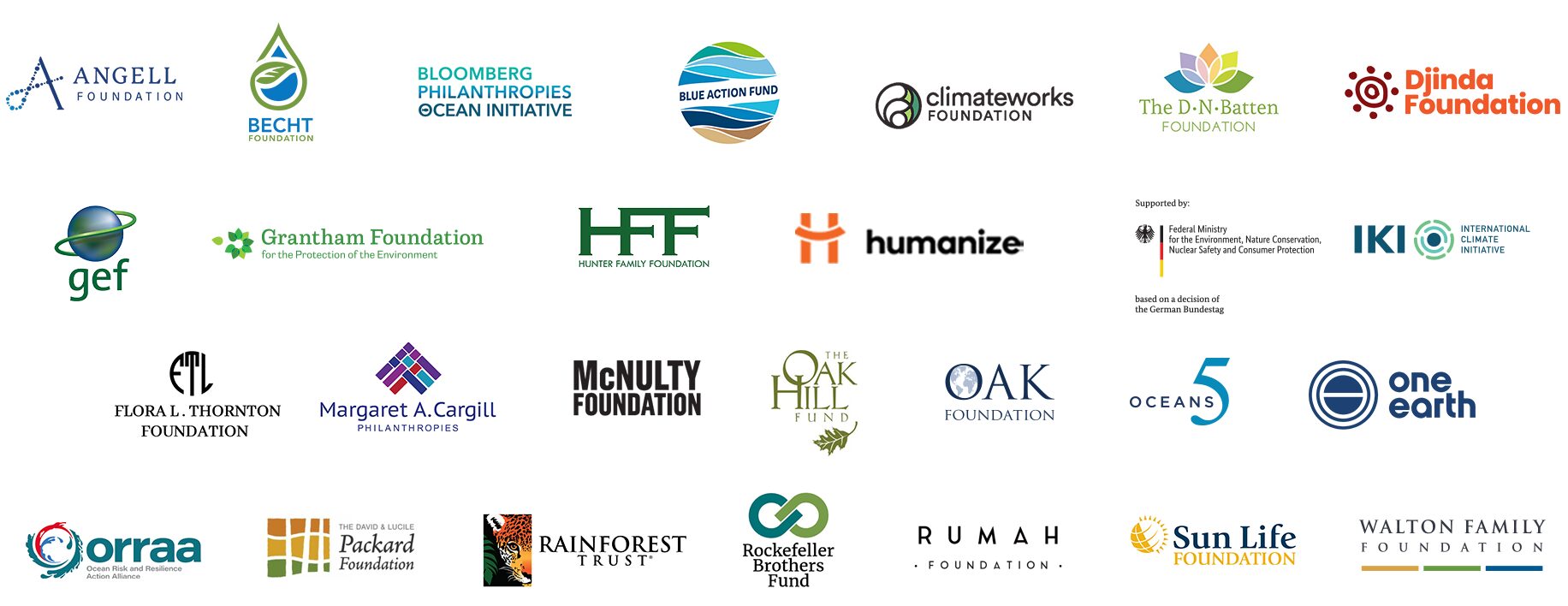Fish Forever Progress Update #46
Rare launches its first sustainable fisheries campaign in Guatemala
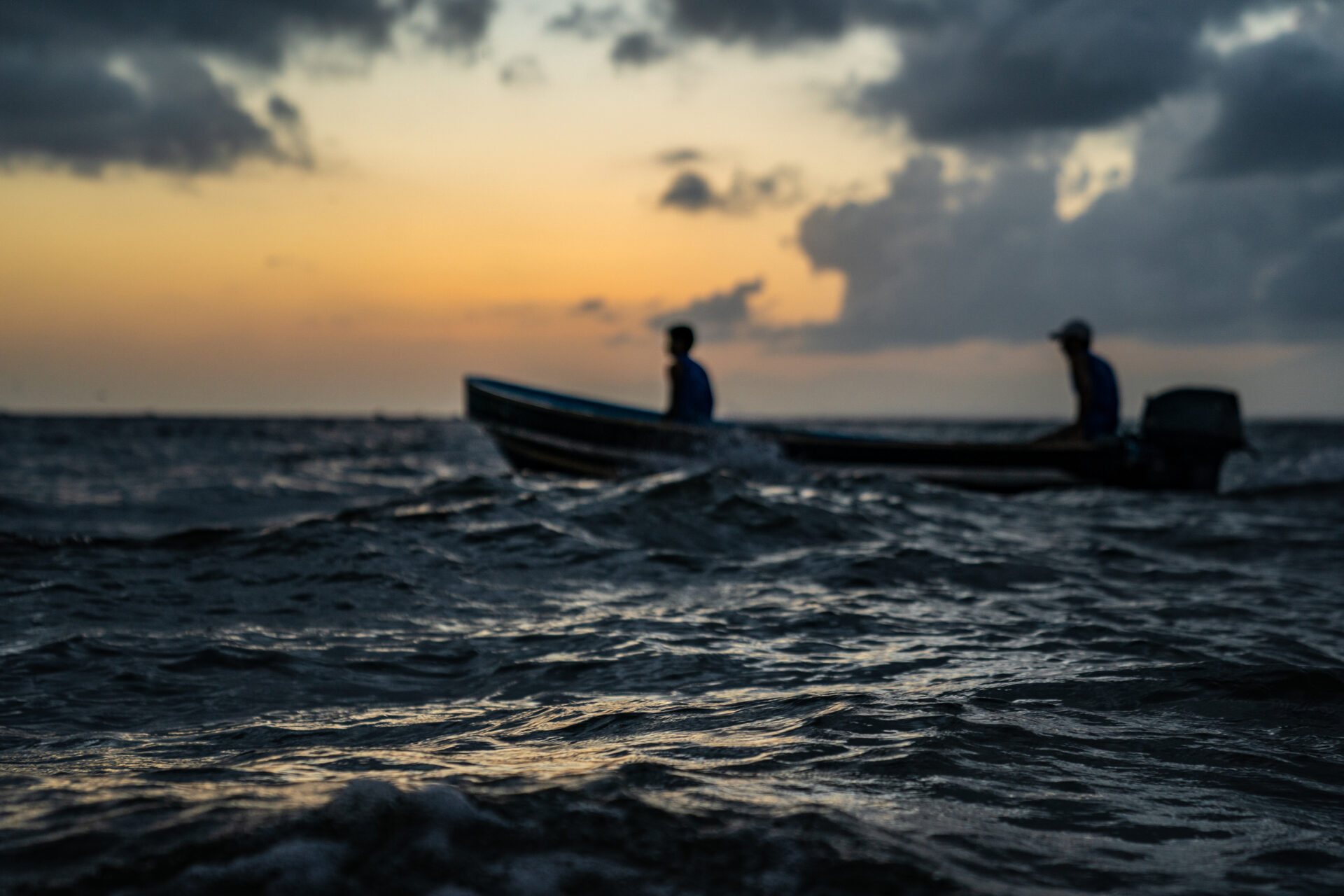
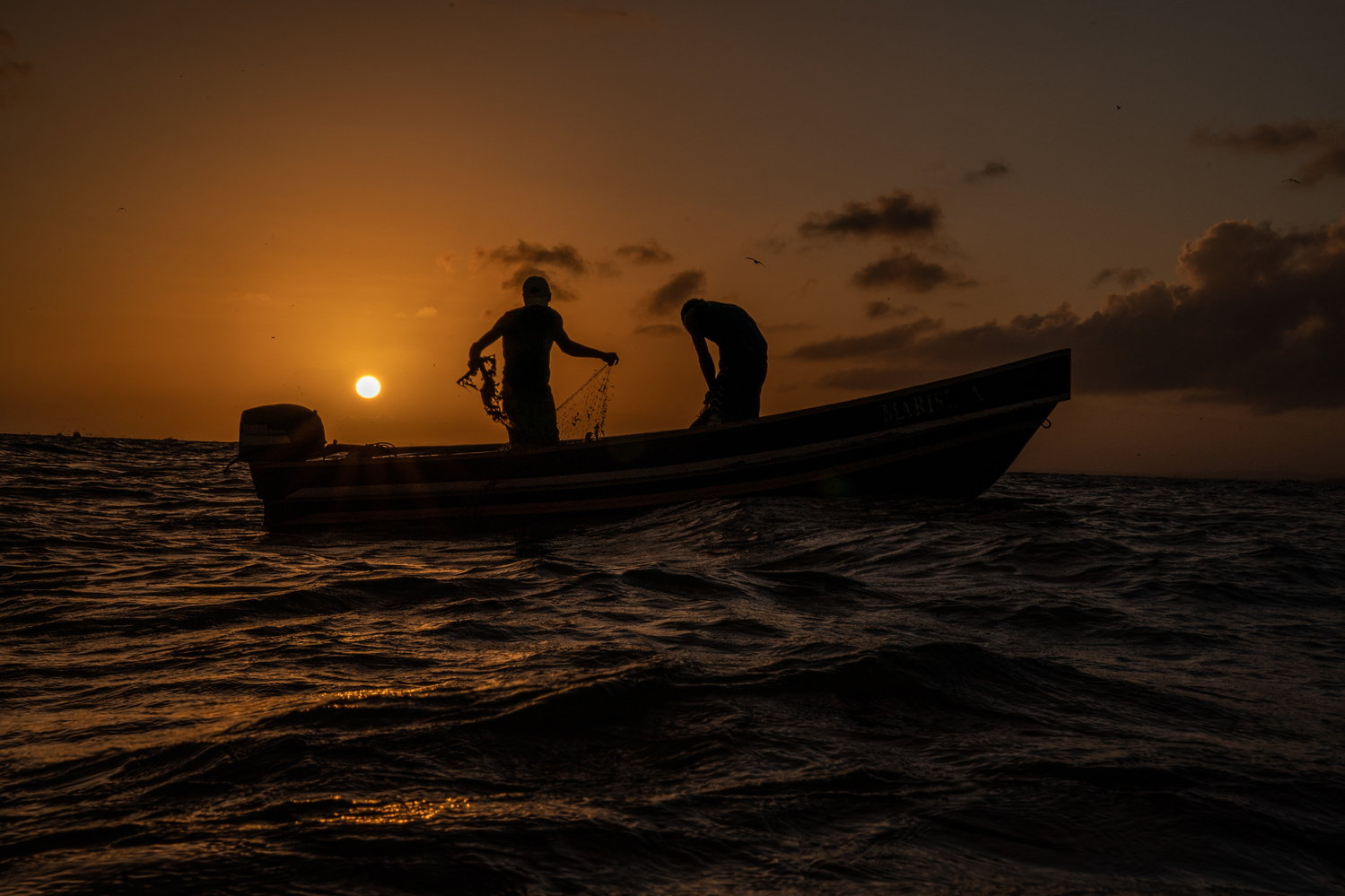
Fishers unite for recognition in Guatemala
On September 21, Rare launched its first Guatemalan pride campaign, “Pesca Unida – Fuerza Compartida (United Fishing – Shared Strength)”. Designed with fishing communities along the Guatemalan Caribbean, the campaign builds unity, sustainability, and inclusive leadership among artisanal fishers. In addition to the communities’ petitions and pledges drafted advocating national recognition for their rights and identity, a major outcome emerged quickly. With support from mayors and local leaders of two communities (Puerto Barrios and Livingston), June 12 is now legally recognized as Caribbean Fishers’ Day — an annual celebration of fishers’ cultural identity, contributions, and vital role in sustaining livelihoods and marine traditions. For fishers, this marks a long-awaited recognition of their place at the heart of Guatemala’s coastal life.
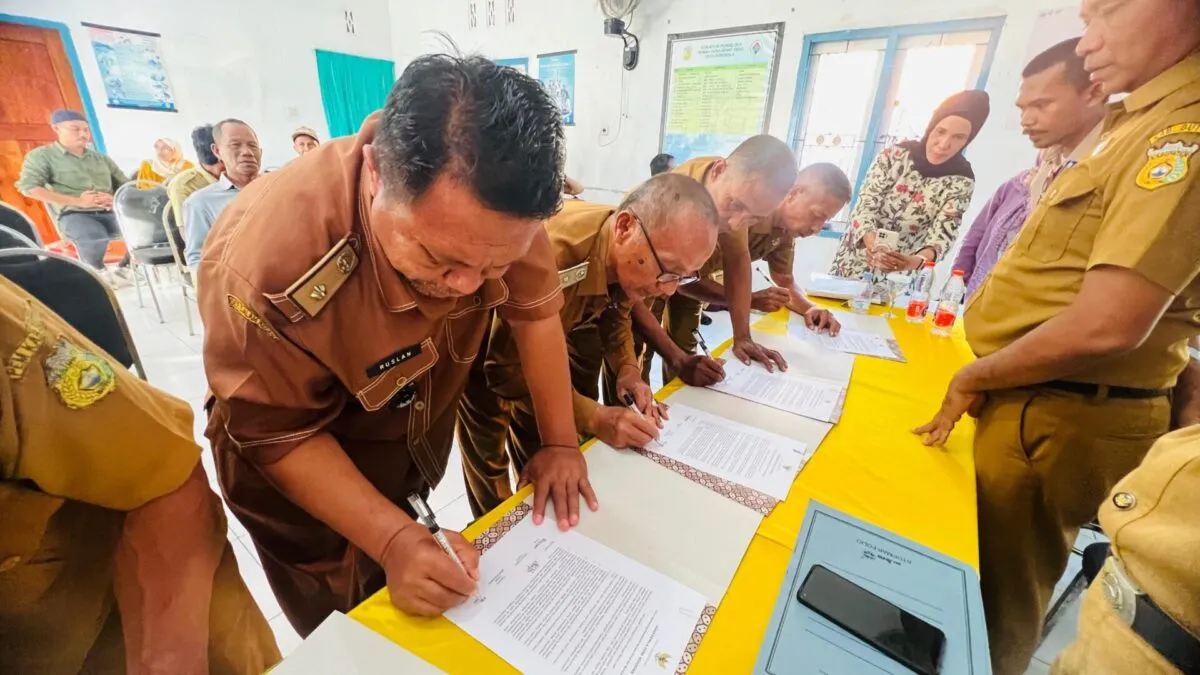
Local leadership surges in Coastal 500
In August, 54 coastal village leaders from Southeast Sulawesi, Indonesia, joined the Coastal 500 — the world’s largest network of mayors and local government leaders committed to thriving coastal communities. The network now totals 414 members, edging towards its 500-member goal. Beyond growth, impact is mounting: In Honduras, Coastal 500 leaders helped secure a national declaration of 12 nautical miles of Caribbean coastline as one large community-led marine protected area covering 17,000 square kilometers (formal government approval is pending).
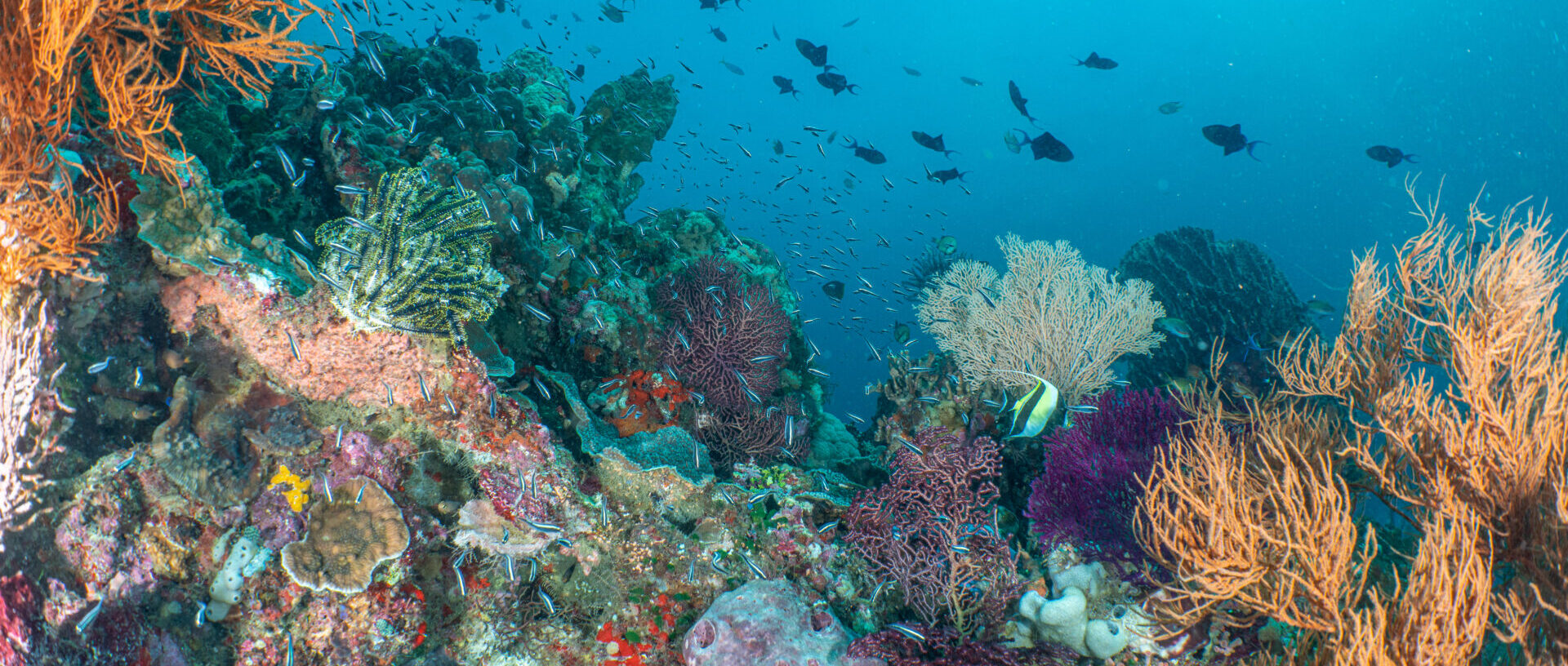
Coral and fish in Wakatobi, Indonesia. Photo Credit: Rare
Joining forces to protect coral reefs in the Coral Triangle
In September, Rare and the Coral Triangle Initiative on Coral Reefs, Fisheries, and Food Security (CTI-CFF) launched a five-year partnership to advance sustainable, community-led fisheries management across one of the planet’s most biodiverse yet threatened regions. Spanning six countries (Indonesia, Malaysia, Papua New Guinea, the Philippines, Solomon Islands, and Timor-Leste), the Coral Triangle is home to extraordinary marine life and millions of people who depend on it. Together, Rare and CTI-CFF will strengthen regional collaboration to protect biodiversity, bolster climate resilience, and secure the ocean’s resources for future generations.
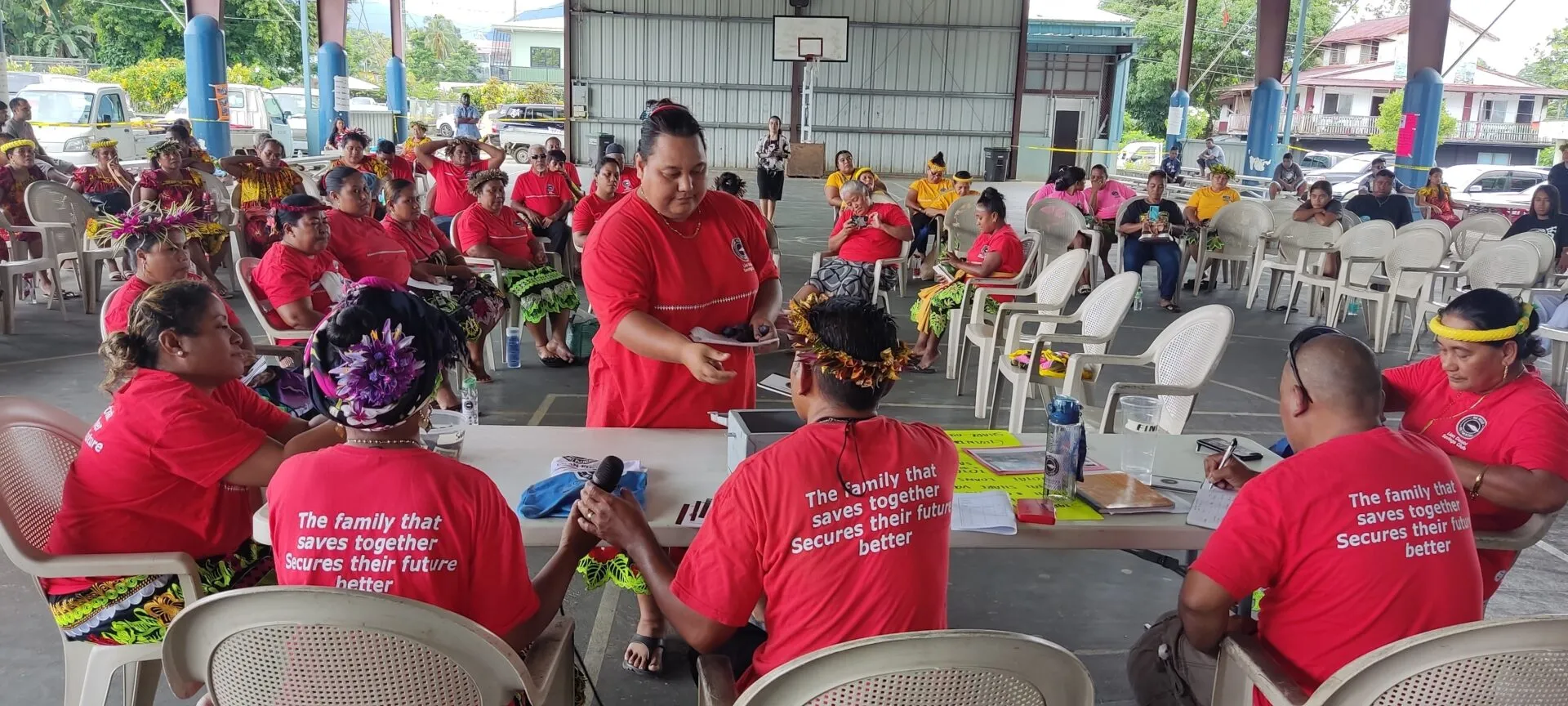
The Lien Deidei Savings Club demonstrates how to conduct a savings club meeting. Photo Credit: Rare
Savings clubs in the Federated States of Micronesia lay the groundwork for financially resilient communities
Since forming its first savings club in the Federated States of Micronesia in 2023, Rare has helped communities implement 14 active savings clubs, uniting over 250 members who have collectively saved nearly $76,000 USD. Saving club members aren’t only building individual financial security — they’re reinforcing community bonds, strengthening environmental stewardship, and supporting local leadership. From personal savings to community environmental campaigns like plastic waste management, the savings club model is helping communities in the FSM foster a more climate-resilient and economically empowered future.
Program Highlights
- The Global Hub for Collaboration and Learning delivered a fisher registration behavior strategy design in the Philippines and a climate and gender equity and social inclusion (GESI) analysis in Honduras.
- In Indonesia, Rare and the Marine and Fisheries Office of Sulawesi Utara co-hosted the Community-Based Surveillance Training and launched a Managed Access Areas with Reserves (MA+R) Network in Manado, the capitol of North Sulawesi province.
- With funding from the Blue Action Fund, Rare successfully launched 34 women-led cooperatives in Mozambique.
- In Palau, Rare is supporting The Nature Conservancy to assess whether coral reef insurance can deliver fast, reliable funding for reef recovery and resilience.
- Rare supported the first steps to pilot the Multidisciplinary Social Engagement Project (PROMUVIS) in Honduras to strengthen university social outreach, sustainable development, and community-based conservation.
- In Brazil, Rare, Coastal 500, and the Municipality of Bragança held the Fishing and Mangrove Conference to unite community leaders and organizations to promote sustainable fishing, aquaculture, and ecosystem conservation.
- In the Philippines, Rare convened mayors, key government representatives, and local fishery councils in its first-ever consultation workshop to engage local representatives in identifying potential sites for Other Effective area-based Conservation Measures (OECMs).
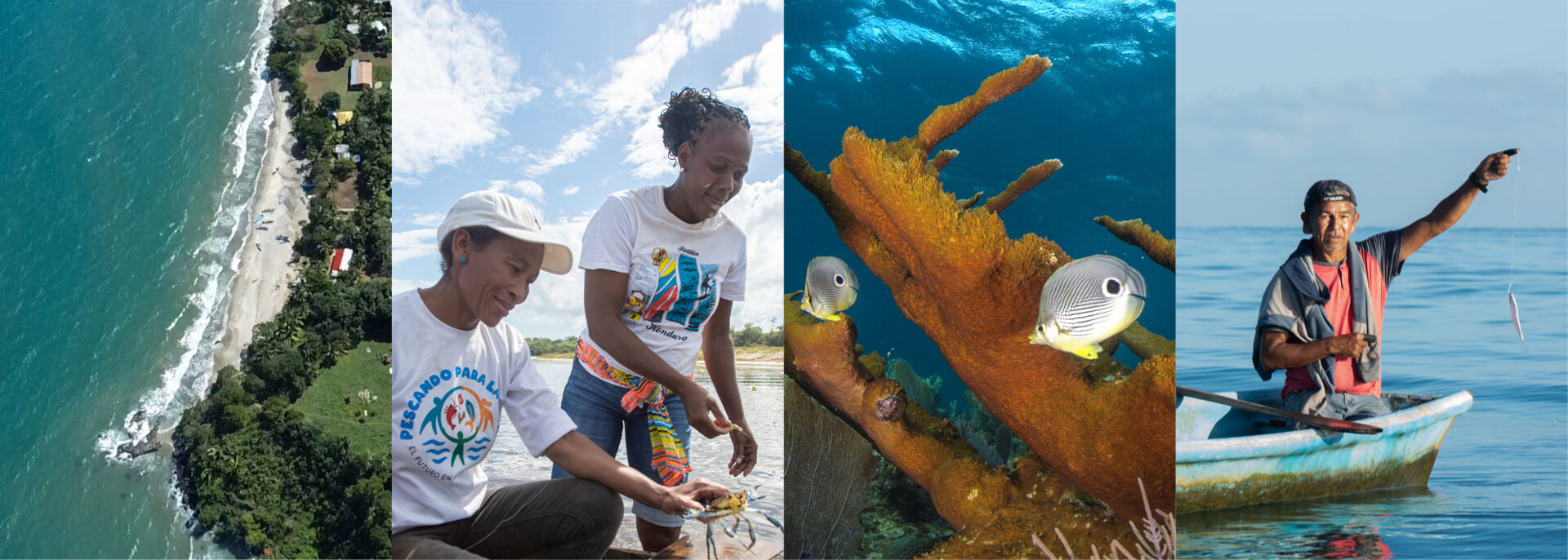
Global Hub for Collaboration and Learning
Strengthening local capacity and accelerating equitable, community-led coastal resource management: The Global Hub for Collaboration and Learning recently delivered a fisher registration behavior strategy design in the Philippines and a climate and gender equity and social inclusion (GESI) analysis in Honduras. The team also launched six e-course prototypes and two global guidance documents to advance GESI and the localization of key international ocean frameworks, namely 30×30 and Other Effective area-based Conservation Measures (OECMs).
Indonesia
Empowering local guardians of the sea: From September 9 to 11, Rare and the Marine and Fisheries Office of Sulawesi Utara co-hosted the Community-Based Surveillance Training and officially launched the Managed Access Areas with Reserve (MA+R) network in Manado, North Sulawesi’s capital. Same The event brought together 130 participants and key speakers from 13 managed access with reserves groups. The program focused on strengthening community-led surveillance and enforcement of marine resource use, gender inclusion in surveillance, sustainable funding sources, and simulation exercises on the sea.
Sustainable financing of locally led fisheries management: For the first time in Indonesia, a fisheries management body (FMB) established its own savings club as part of its management operations. The Maleoleosan management group established the club and plans to replicate the model across 12 villages in East Minahasa district, North Sulawesi. This novel community-led approach aims to provide sustainable funding for FMB management activities, including surveillance operations, mangrove restoration, and sea turtle protection.
Mozambique
Rare launches 34 women-led cooperatives: With funding from the Blue Action Fund, Rare successfully launched 34 women-led cooperatives in Mozambique. These cooperatives emerged from long-supported savings clubs and underwent a rigorous business development process, including identifying value chain opportunities, drafting business plans, formalizing legal status, and opening bank accounts. Each received approximately $20,000 in seed funding, totaling approximately $600,000. While these businesses are just beginning operations, they represent a promising step toward reducing fishing pressure in community-managed areas.
Rare secures £1.5M grant to reignite coastal work in Inhambane province: Rare has secured a £1.5 million grant from the UK COAST Facility to support a new four-year initiative in the districts of Inhassoro and Inharrime in Inhambane. This funding marks Rare’s return to these coastal communities, enabling the continuation and expansion of work previously interrupted by the closure of a USAID-funded project. Starting in October 2025, the project will focus on strengthening community-managed fishing areas, revitalizing local fisheries governance, supporting community businesses, and introducing innovative tools like microinsurance and digital catch reporting.
Palau
Testing reef insurance to boost Palau’s resilience: In Palau, Rare is supporting The Nature Conservancy to assess whether coral reef insurance can deliver fast, reliable funding for reef recovery and resilience. Backed by The Global Fund for Coral Reefs, the four-month study explores Palau’s readiness to adopt reef insurance — an approach already piloted in Fiji, Hawai’i, and Mexico. The study builds off an earlier four-country study of reef insurance design and feasibility. By channeling resources quickly after storms or bleaching events, reef insurance can help reefs recover faster, sustain fisheries, and protect coastal communities.
Central America: Honduras and Guatemala
Rare strengthens collaboration between universities and local communities: Rare supported the first steps to pilot the Multidisciplinary Social Engagement Project (PROMUVIS), led by the Regional University Center of La Ceiba and the Extension and Social Outreach Directorate of the National Pedagogical University Francisco Morazán in La Ceiba. This pilot marks the strategic alliances with Rare and universities to strengthen university social outreach, sustainable development, and community-based conservation.
Expansion of savings clubs in Colón: More than 24 savings clubs in the Colón Department are now transitioning into rural savings and credit banks, formalizing their structures and increasing access to financial services. This Rare-supported milestone strengthens financial inclusion and community resilience across the region.
Entrepreneurship and financial education in Omoa: Sixty entrepreneurs graduated from Rare’s financial education program in Omoa in the Cortés Department, advancing local financial literacy and business skills that support sustainable livelihoods and reduce migration pressures.
Brazil
Uniting fishing communities at The Fishing and Mangrove Conference: On August 20 and 21, Rare, Coastal 500, and the Municipality of Bragança held the Fishing and Mangrove Conference in the Bragança municipality. The event united community leaders and organizations to promote sustainable fishing, aquaculture, and ecosystem conservation.
Oyster and crab monitoring for ecological sustainability: Rare supported ecological monitoring across 11 oyster reefs in the Mãe Grande de Curuçá RESEX (extractive reserve). The team also helped facilitate crab monitoring in the Cururupú RESEX and Soure RESEX. The data collected from these initiatives will play a vital role in guiding community-based fisheries management.
Green July 2025 mobilizes communities to protect the Amazon mangroves: With support from Rare and local partners, 100 communities across Brazil’s Amazon coast mobilized for the fifth July Verde (Green July) campaign to call for mangrove conservation. For the first time, actions took place simultaneously in Pará, Amapá, and Maranhão states. The campaign enhanced coastal communities’ visibility, highlighted the importance of traditional and scientific knowledge, and showcased mangroves as nature-based solutions for healthy fisheries, community wellbeing, and climate resilience.
The Philippines
Rare co-leads workshop on Other Effective area-based Conservation Measures (OECMs): In partnership with the Wildlife Conservation Society (WCS), Rare convened mayors, key government representatives, academics, and local fishery councils in Cebu City for its first-ever consultation workshop to engage local representatives in identifying potential sites for Other Effective area-based Conservation Measures (OECMs). The event represents a significant step forward in exploring new pathways for conservation and rallying collective action toward the country’s 30×30 goal.
Rare strengthens fisheries partnership in Caraga during Fish Conservation Week: At the 62nd Fish Conservation Week in Butuan City, Rare signed a memorandum of agreement (MoA) with the Bureau of Fisheries and Aquatic Resources (BFAR) Region 13, reinforcing its commitment to sustainable fisheries in the Caraga region. The event celebrated Rare’s unique social marketing approach with a lively mascot parade, during which BFAR Caraga unveiled its own mascots. Provincial Fisheries Offices pledged continued collaboration by adopting tools such as the model fisheries ordinance, the coastal fisheries resource management plan template, EarthRanger-enabled digital law enforcement, and fish catch documentation systems. This strategic partnership helps position Caraga as a key hub connecting Fisheries Management Areas 8 and 9 with Macajalar Bay, strengthening regional biodiversity protection efforts and Rare’s sustainable fisheries work in the region.
Sharing best practices and building a network of commitment in Southern Palawan: From September 21 to 26, Rare, coastal fisheries leaders, Indigenous Peoples, and local government representatives from the Southern Palawan municipalities of Aborlan, Narra, Sofronio Española, Brooke’s Point, Rizal, Quezon, and Bataraza met in Iloilo and Antique for a learning exchange on local fisheries governance and community empowerment. Participants shared coastal management initiatives, visited Ajuy’s award-winning mangrove and fisheries programs, and learned sustainable aquaculture practices.
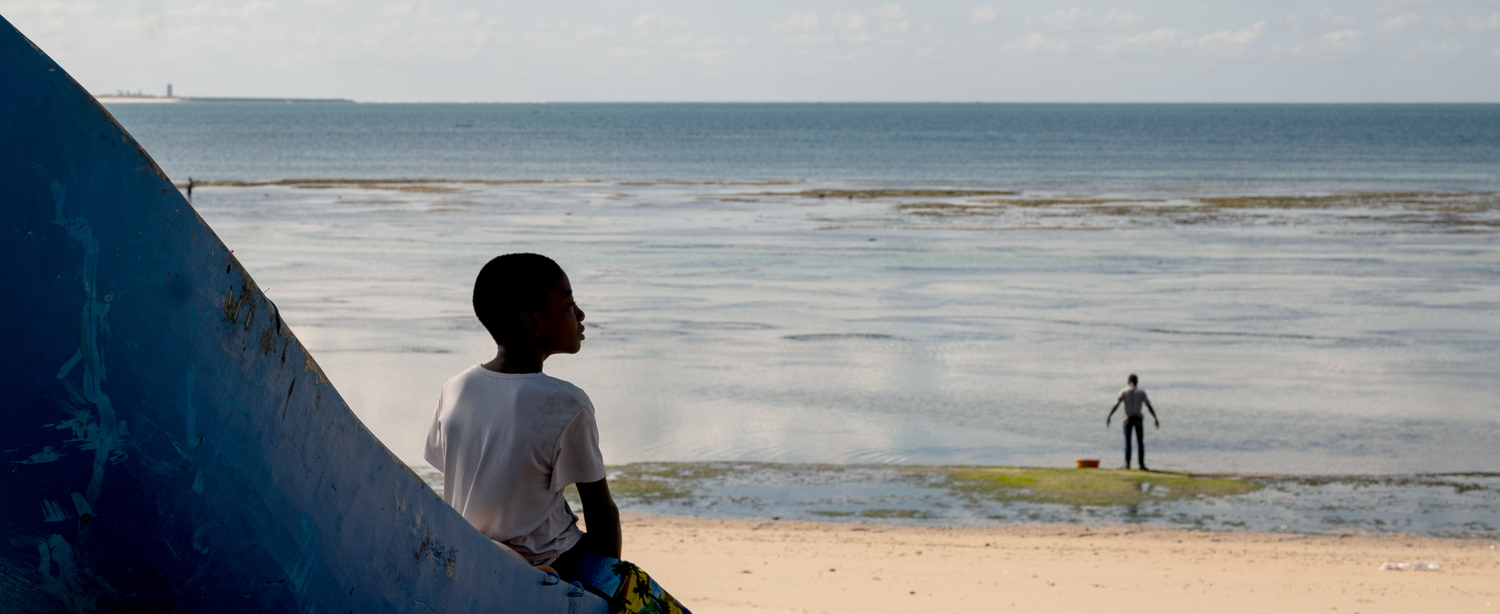
Field-building research
Okemwa, G. M., Maina, G. W., Kimani, E. N., Abubakar, A., Silas, M. O., Mwakosya, C., … & Osore, W. (2025). Perspectives on beach seine fishing in the Western Indian Ocean: A review. Marine Policy, 182, 106880.
Though the fishing gear itself has been made illegal in recent years, many fishers in Mozambique depend on beach seines for food and livelihoods. The authors of this report tackle the problem head-on, sharing experiences from countries along the Indian Ocean to examine the challenge of switching to sustainable fishing gear. The authors argue that rather than simple catch limits or bans, management requires a more holistic approach considering catch, livelihoods, social dynamics, and ecological impacts. This strategy mirrors Rare’s approach as our Mozambique team talks directly with beach seine fishers to understand their livelihoods, the impacts of gear bans, and alternative solutions that can meet both ecosystem and human needs.
Harper, S. J., Williams, M., Kleiber, D., Axelrod, M., Mangubhai, S., Torell, E., … & McDougall, C. (2025). Designing gender-inclusive data systems in small-scale fisheries. Ambio, 1-15.
This group of global authors, including Rare’s Ben Siegelman, combines collective experience to argue that small-scale fisheries data systems need major changes. They point out that data collection requires a wider perspective to accurately reflect women’s contributions to fisheries. The authors provide a concrete list of indicators, data sources, and policy priorities that can improve gender equity in small-scale fisheries.
O’Dea, A., Sellers, A. J., Pérez-Medina, C., Pardo Díaz, J., Guzmán Bloise, A., Pöhlker, C., … & Haug, G. H. (2025). Unprecedented suppression of Panama’s Pacific upwelling in 2025. Proceedings of the National Academy of Sciences, 122(36), e2512056122.
Panama’s Pacific coast typically experiences a yearling upwelling where deep waters move upward to cool the sea surface and provide an influx of nutrients. This reliable pattern sustains fisheries and coral reef ecosystems. Last year, for the first time in 40 years of recorded data, it didn’t happen. This lack of an upwelling has concerning implications for coral bleaching, fish migration, and livelihoods that depend on coastal fisheries and larger weather systems. The article’s authors document this change, suggesting it was likely caused by a slowing of trade winds, perhaps in association with La Niña.
Never miss an update!
Sign me up for occasional emails to learn more about Rare’s Fish Forever program and how I can support its mission.
I know I can unsubscribe at any time.
About Rare’s oceans program
Fish Forever: Rare’s Fish Forever program is a global leader in revitalizing our coastal seas and communities. The program helps coastal fishing communities worldwide to restore, protect, and manage their fisheries.
Goal: To deliver replicable and scalable community rights-based management across eight countries, using a global network of 500 local leaders to secure livelihoods for one million fishers, alleviate poverty, ensure food supply, and protect coastal ecosystems from chronic threats.
Fish Forever Countries: Philippines, Indonesia, Mozambique, Brazil, Honduras, Guatemala, and the Pacific Island countries of Palau and the Federated States of Micronesia
Fish Forever is possible thanks to the support of many, including the following current donors:
